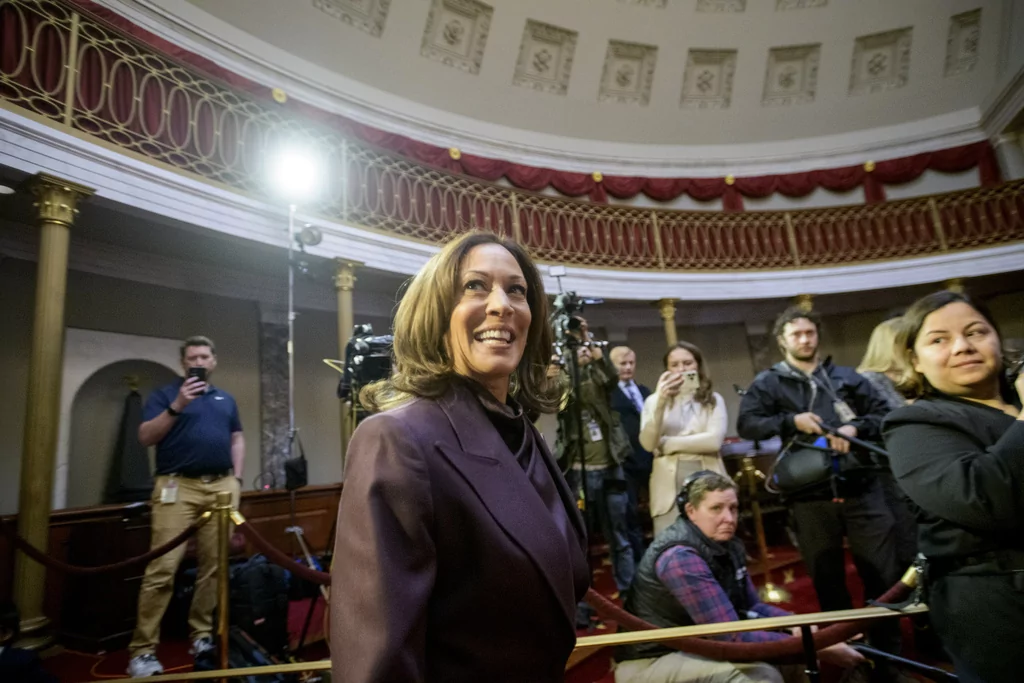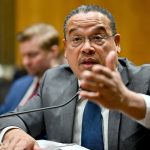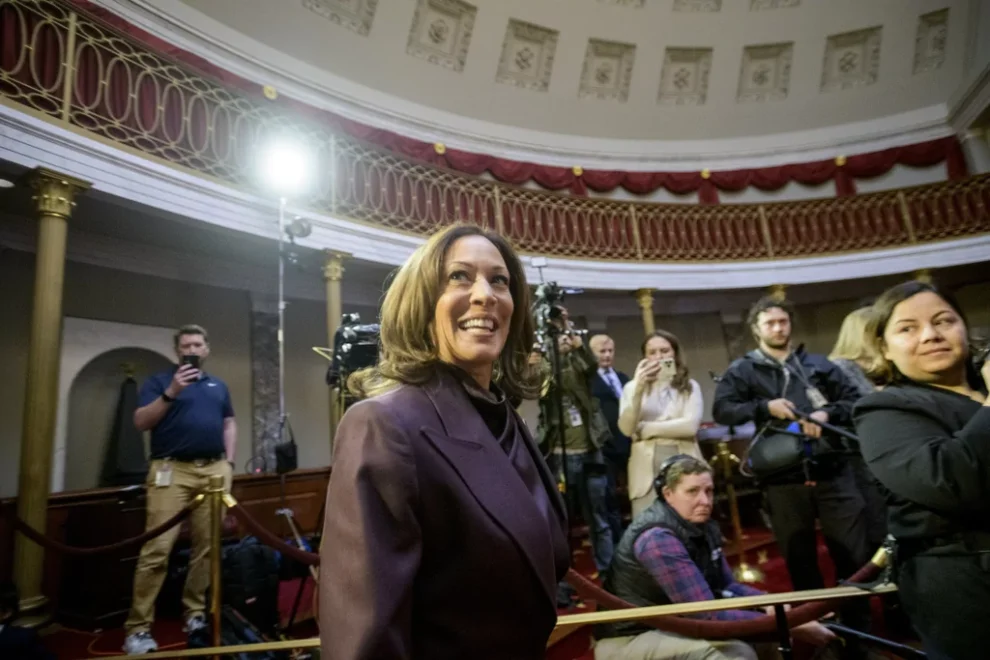Vice President Kamala Harris swore in new senators Friday to begin the 119th Congress, ushering in the new Republican majority as one of her final acts ahead of President-elect Donald Trump‘s inauguration later this month.
Republicans secured a 53-47 Senate majority in the November elections, flipping four seats to erase Democrats’ narrow 51-49 control of the chamber.
Harris convened and presided over the new session, administering the oath for new senators in alphabetical groups of four.
“I want to welcome members to the 119th Congress, particularly those freshmen senators who took the oath of office this morning,” said Sen. John Thune (R-SD), the new majority leader. “The words of the oath, which we hear at the start of each new Congress, are a reminder of the profound responsibility with which we have been trusted, and that is to support and defend the Constitution of the United States.”
Senate Minority Leader Chuck Schumer (D-NY), staring down a Republican trifecta in Washington, said the Senate was convening “at a time of uncertainty for American democracy, for America’s economy, and for the future leadership of America on the world stage.”
The new senators sworn in were Jim Banks (R-IN), John Curtis (R-UT), Tim Sheehy (R-MT), Bernie Moreno (R-OH), Dave McCormick (R-PA), Ruben Gallego (D-AZ), Adam Schiff (D-CA), Andy Kim (D-NJ), Angela Alsobrooks (D-MD), Elissa Slotkin (D-MI), and Lisa Blunt Rochester (D-DE).
Sen.-elect Jim Justice (R-WV) opted to delay taking office until his term as West Virginia governor ends on Jan. 13.
Sen. Chuck Grassley (R-IA), 91, was sworn in as Senate president pro tempore. The position is third in line to the presidency, behind the vice president and House speaker.
Separately, the Senate agreed unanimously to a series of procedural resolutions conducted at the beginning of each new Congress. An organizing resolution to approve committee assignments and allow the panels to begin conducting business was not addressed but is expected to be approved by early next week.
The various proceedings took place without fanfare, in stark contrast to the drama unfolding on the other side of the Capitol, as House lawmakers prepared for repeated votes on whether to elect House Speaker Mike Johnson (R-LA) for another term leading the chamber.
Johnson failed to clinch a majority of the votes in the first round.

The Senate’s events marked one of Harris’s last constitutional duties as president of the Senate before she and President Joe Biden depart from office on Jan. 20 and Trump and Vice President-elect J.D. Vance (R-OH) are sworn in.
Vance remains a senator but will resign before being sworn in as vice president. Gov. Mike DeWine (R-OH), who was present in the Senate on Friday to support Moreno’s swearing-in, will be tasked with naming a replacement.
Harris’s most consequential role will come Monday when Congress meets to certify her loss in the presidential election. The Jan. 6 date will be the fourth anniversary of the 2021 attack on the Capitol that delayed certifying the results during a process overseen by then-Vice President Mike Pence.
MEET THE NEW CONGRESS: THE HOUSE AND SENATE FRESHMEN ELECTED TO SERVE NEXT YEAR
During her tenure as vice president, Harris was required to make frequent trips to the Senate to cast tiebreaking votes due to the Democrats’ one-seat majority.
After she departs the vice presidency, what’s next for Harris remains to be seen. She’s a possible contender for California governor in 2026, given Gov. Gavin Newsom (D-CA) is term-limited.
Harris previously served as a senator from California before her election as vice president.
























